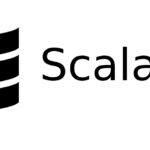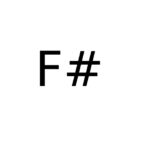
In the vast landscape of programming languages, there are few that can match the elegance and expressiveness of F#. Developed by Microsoft Research, F# is a functional-first programming language that combines the best of functional programming with the power of object-oriented programming. With its succinct syntax, strong static typing, and advanced features, F# has gained popularity among developers seeking to build robust, scalable, and maintainable applications. In this blog, we will delve into the world of F sharp and explore its unique features and advantages.
Functional Programming Paradigm
At the heart of F# lies the functional programming paradigm. F# treats functions as first-class citizens, allowing developers to write code that is concise, modular, and highly composable. F# embraces immutability, emphasizing pure functions that do not have side effects, leading to code that is easier to reason about and test. By leveraging functional programming principles, F# promotes code that is more predictable, less error-prone, and highly parallelizable.
Strong Static Typing
F# is statically typed, which means that types are checked at compile-time, enabling early detection of errors and ensuring safer code. The type inference capabilities of F# relieve developers from explicitly specifying types in most cases, reducing verbosity and allowing for more concise code. The static type system also enables powerful tooling support, such as code completion, refactoring, and static analysis, which enhance productivity and maintainability.
Interoperability with .NET
F# seamlessly integrates with the .NET ecosystem, making it a powerful language for building applications across various platforms. F# can leverage the vast array of libraries and frameworks available in the .NET ecosystem, including those developed in C# or VB.NET. This interoperability allows developers to leverage existing investments in .NET while enjoying the benefits of F#’s functional programming paradigm.
Asynchronous and Parallel Programming
F# provides excellent support for asynchronous and parallel programming, making it well-suited for building scalable and responsive applications. Asynchronous workflows, known as async in F#, enable developers to write non-blocking, concurrent code that efficiently handles I/O-bound operations. Additionally, F# offers powerful abstractions like the Task Parallel Library (TPL) and the F# MailboxProcessor, which simplify parallel programming by abstracting away the complexities of managing threads and synchronization.
Domain-Specific Language (DSL) Capabilities
F# has a unique capability to create domain-specific languages (DSLs) effortlessly. The succinct syntax, combined with the ability to define custom operators and computation expressions, allows developers to shape the language to match the problem domain. This empowers domain experts to express their ideas directly in the code, leading to more readable and expressive solutions.
Cross-Platform Development
F# is not limited to the Windows ecosystem. It is a cross-platform language that can run on various operating systems, including Windows, macOS, and Linux. This portability opens up opportunities for F# developers to build applications that target different platforms, such as web, cloud, mobile, or IoT, using the same language and codebase.
Conclusion
F# is a powerful and expressive programming language that combines the elegance of functional programming with the interoperability of .NET. With its functional-first paradigm, strong static typing, and advanced features for asynchronous and parallel programming, F sharp offers developers a robust toolset for building scalable, maintainable, and performant applications. Whether you’re a seasoned functional programming enthusiast or someone looking to explore new horizons in software development, F# provides a refreshing and powerful approach to solving complex problems. Embrace the power of F sharp, and unlock a world of possibilities in your programming journey.













































Recent Comments